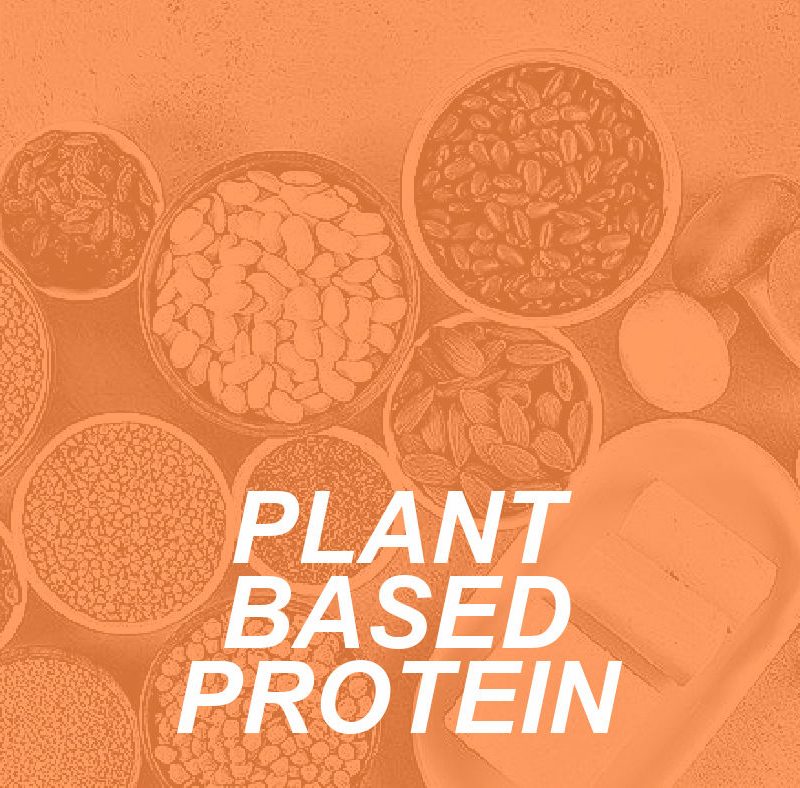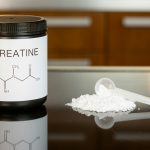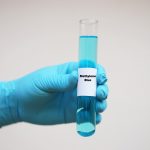
The word “protein” hails from the Greek proteios, meaning “of prime importance”. Throughout history, meat-based meals have tended to reflect affluent lifestyles, relegating “substandard” plant-based diets to the lower class. As certified personal trainers, we can help dispel the myth that meals built around plant-based protein sources do not adequately support the body’s myriad of processes. Rather, we see more evidence pointing to plant consumption as serving our bodies in the best possible way, including building strength.
The Body and Muscles Adapt
In recent years, the inclusion of plant protein sources in the American diet has grown, and evidence continues to accumulate on the integrity of plant protein sources with regard to stimulating muscle protein synthesis (MPS), exercise training adaptations, and post-workout recovery. A multitude of studies concur that plant-based proteins consumed over 8-12 weeks (considering only those sources offering adequate amounts of essential amino acids, especially leucine) can stimulate training results on par with those seen from consumption of animal protein sources.
Plant-Based Protein Popularity
Many plant-based protein advocates highlight a greater level of economic sustainability than what we observe with diets rich in animal protein. An interesting piece of data reveals that ~ 60% of dietary proteins consumed worldwide originate from plant sources; in fact, an estimated four billion individuals worldwide exist on primarily plant-based meal plans. Given that plant-based diets are routinely linked with a reduction in the occurrence of many kinds of cancers as well as type II diabetes and cardiovascular diseases, we can see why this culinary culture deserves attention.
Ample Anabolism
Many factors contribute to the anabolic potential of a protein source, including its total number/type of amino acids, essential amino acids, and branched-chain amino acids contained therein. A protein’s level of digestibility also figures prominently. Biological values for common plant sources range from 56–74 out of a possible 100, while most animal-derived protein sources come in anywhere from 77-100.
A similar dichotomy exists for net protein utilization values; plant sources range from 53–67 while animal sources range from 73–94, once again on a 100-point scale. While not as high as animal-sourced foods, plant-based protein foods can serve as a significant source of protein; eating more plants is never a bad thing!
Looking to Leucine
The leucine content of a protein source functions as a reliable predictor of MPS rates. When comparing different protein sources, most trainers already know that whey protein boasts the highest percentage of leucine (~12–14%), which aligns with its superior ability to stimulate muscle protein synthesis. Moreover, animal protein sources generally contain greater amounts of leucine (8–9% for non-dairy animal sources, >10% for dairy protein sources) while plant sources typically contain only 6-8% leucine.
Several strategies exist to facilitate the anabolic potential of various protein sources:
- co-ingestion of plant proteins with additional amino acids or other protein sources
- supplementing plant sources with those amino acids deemed to be low or limiting
- increasing the size of the protein serving.
- some preliminary research shows that consuming omega-3 fatty acids with an amino acid infusion after resistance training can boost anabolic muscle activity.
“Complete” versus “Total” Protein
While not every plant-based food provides a “complete” protein, consuming a wide variety of plant sources ensures a sufficient intake of essential amino acids. The human body can inherently make use of the total amino acids ingested over the course of a day to provide the fuel necessary for muscle building.
Research has shown that all plants contain protein, and at least 14% of the total calories of every plant come from protein. If an individual consumes 2000 calories a day from plant sources containing a minimum of 14% protein, the total number of calories ingested from protein is 280. Given that a gram of protein provides 4 calories, dividing 280 calories by 4 reveals that such a meal plan can offer 70 grams of protein.
An average female body requires a minimum of anywhere from 30-50 grams of protein per day, while men typically need 50-70 grams. Thus, it appears that if a person meets caloric needs with plant-based nutrition, protein requirements get satisfied. Though muscle-building athletes may require more.
Plant-Based Powerhouses
For a nutrition-minded personal trainer with vegetarian/vegan clients, it comes as no surprise to learn that beans (27% protein), lentils (36%), chickpeas (33%), peas (30%), and kale (22%) provide the greatest culinary opportunity to acquire sufficient protein. However, beans and lentils do not stand alone as quality sources of plant protein, but when combined with grains like rice, fulfill the need for all essential amino acids.
Nature’s bounty does offer many additional tasty, plant-based choices that fit the bill in rounding out a complete protein.
One cup of cooked quinoa provides approximately 8 grams of protein, in addition to more magnesium, iron, and zinc than most other grains. A 3-ounce serving of tofu provides approximately 8 grams of protein; the same amount of tempeh contains 11 grams of protein. Similar to quinoa, both of these sources come packed with fiber and iron, as well as potassium and calcium.
In addition to being a source of complete protein, hemp offers a healthy dose of linoleic acid (omega-6) and alpha-linolenic acid (omega-3), both considered essential fatty acids. Three tablespoons of raw, hulled hemp seeds boast 10 grams of protein along with iron, phosphorus, potassium, magnesium, and zinc. Chia seeds, too, provide 6 grams of protein and 13 grams of fiber, plus the added benefits of iron, calcium, selenium and magnesium.
Seitan, derived from the main protein in wheat, may not figure prominently in a gluten-free plant-based diet; but at 25 grams of protein per 3.5-ounce serving, seitan reigns as the richest of all plant protein sources. When cooked, this unique compound actually resembles the appearance of meat, a highly desirable quality among more discerning vegetarian/vegan chefs.
Other sources of complete plant proteins include amaranth, spirulina, buckwheat, sprouted grain bread, and nutritional yeast (this being an excellent additional to a vegan diet due to its high vitamin B content).
Powdered Plant-Based Protein Supplementation
Personal trainers often refer avid bodybuilding clients towards the use of protein powders, an easy way to boost intake following a strenuous workout. Unfortunately, the majority of popular brands derive from animal-based sources such as whey or casein.
A few high-quality protein powders on today’s shelves do cater to vegan/vegetarian athletes, and make excellent use of plant-derived protein sources. Here we highlight some of the best from which to choose ~
- Peas
- Sprouted navy/garbanzo/lentil beans
- Flax/pumpkin/chia seeds
- Quinoa
- Almonds
- Alfalfa
- Rice
By combining various plant-derived protein sources in a single supplement powder, manufacturers increase the odds of delivering a highly diverse amino acid panel, replete with as much muscle protein synthesis power as what one finds from animal-sourced protein powders.
Final Thoughts
Whether you or your personal training clients currently embrace a wholly plant-based approach to nutrition, more and more individuals have jumped on the interest bandwagon. Smart, sustainable, healthy and more potent than we perhaps realized, protein derived from the garden can go a long way towards helping athletes achieve the lean muscle mass they desire.
References:
https://www.wholefoodsmarket.com/tips-and-ideas/archive/yes-plants-have-protein
https://www.healthline.com/nutrition/complete-protein-for-vegans#_noHeaderPrefixedContent
https://www.ncbi.nlm.nih.gov/pmc/articles/PMC8230006/
https://www.healthline.com/nutrition/best-vegan-protein-powder-review#our-pick







